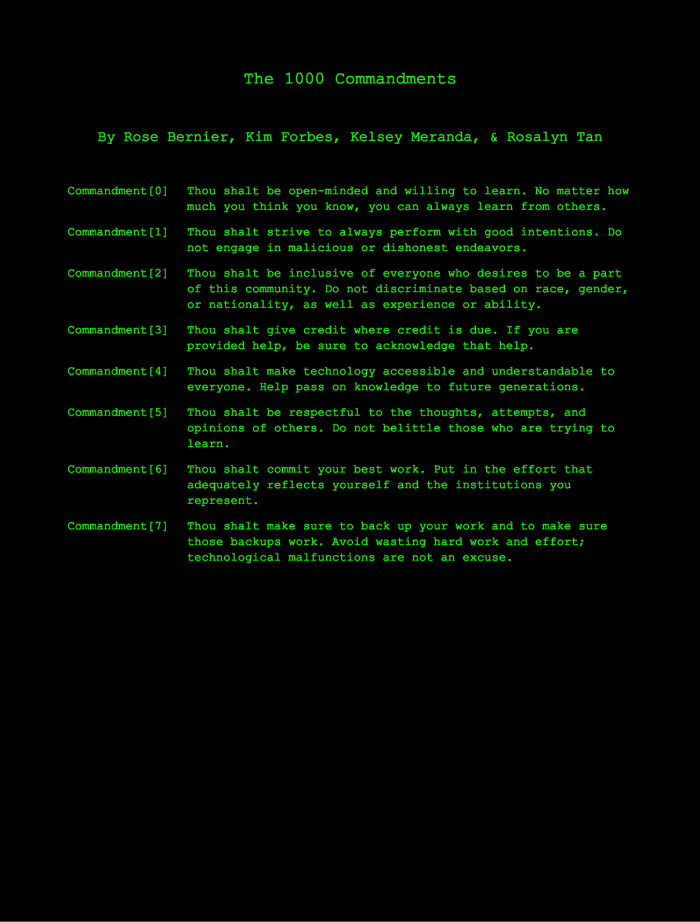
Our Code of Ethics touches on many similar themes as the ACM Code of Ethics and Professional Conduct. However, since our code is meant to be specific to Computer Science & Engineering students at Notre Dame, we tried to put more emphasis on acting ethically in a learning environment. For example, our first commandment is for students to always have an open mind and a willingness to learn, while our sixth commandment relates to being respectful toward those who are trying to learn. I think emphasizing the ethics of learning is important because often, as students gain experience and knowledge, they may become arrogant. Our code stresses the importance of staying humble and not writing off those who are new to the field and may not have as much experience, something that is especially relevant for students.
Our code also addresses issues relevant to the Notre Dame community, and by extension the Notre Dame Computer Science & Engineering community. Commandment[2] says to be inclusive of everyone who desires to be a part of this community. I found this to be especially relevant, considering our president’s recent Executive Order that sets incredibly restrictive limits on immigration into our country. Following this, Father Jenkins and our student government have both released public statements emphasizing the need for diversity and inclusion, and urging the President to rescind the order. The Notre Dame community and the computer science field both thrive on diversity and the amalgamation of different viewpoints and ideas. As a result of these recent events, I thought it was fitting to include Commandment[2] in our Code of Ethics.
Of course, our Code of Ethics is not perfect. Some of our commandments are subject to personal interpretation. For example with Commandment[6], “Thou shalt commit your best work,” the standard of “best” may be different with different people. Many of our commandments use language like this, where the interpretation may vary with the different standards of different people. This can be addressed by greater specificity. However, I do not believe this is necessary. The Code of Ethics is meant to be a guideline, not a strict rulebook. Therefore, it is okay to allow some personal interpretation of the commandments to occur.
In general, I do not believe a Code of Ethics is very useful. Most of the guidelines enumerated in our Code of Ethics are basically common-sense moral guidelines. If a person is moral, she doesn’t really need our Code of Ethics to guide her actions, as she most likely acts ethically anyway. On the other hand, if a person is not an innately moral person, then she most likely would not follow the guidelines in our Code of Ethics even if it were provided to her. However, even though having a codified Code of Ethics may not be very useful, the process of enumerating our commandments was still a beneficial exercise. Even though we act according to our guidelines already, typing them out made us actively think about what we as engineers hold as our moral values.